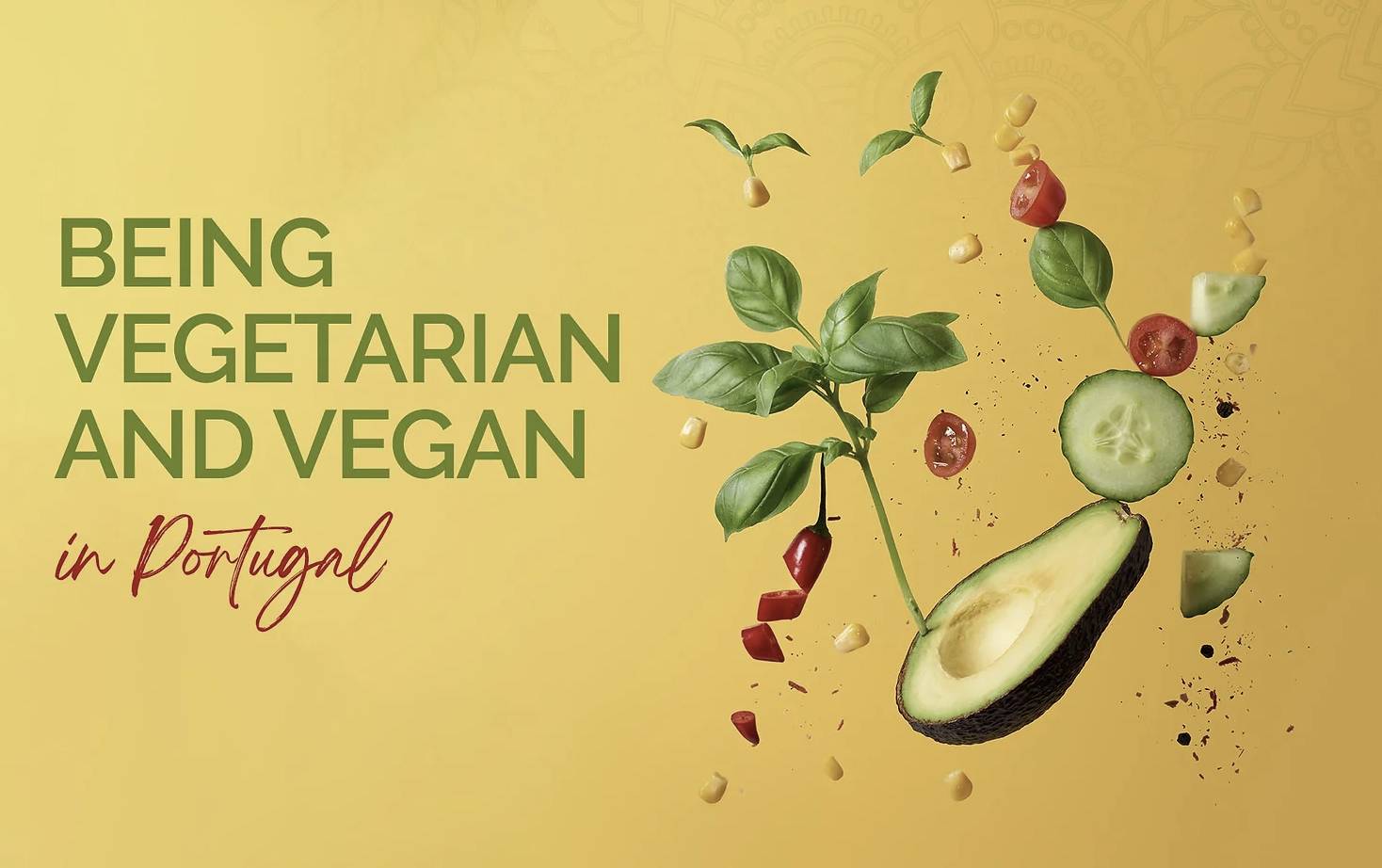
Being Vegetarian and Vegan in Portugal
Being Vegetarian and Vegan in Portugal. How Easy is it?
Article by Savvy Cat - Official Buyers Agent to KipperTree.
15 01 2024
Portugal has become an increasingly popular destination for travelers - one reason being our fantastic food! However, for those following a vegetarian or vegan lifestyle, exploring the local cuisine can sometimes be challenging.
In this blog, we'll take you on a small culinary journey through Portugal, sharing insights, tips, and must-try dishes for both vegetarians and vegans.
Portuguese Cuisine
Portugal is known for its culinary delights, heavily influenced by its coastal location and historical ties to exploration. Seafood and meats are dominant in traditional Portuguese dishes, making it seem like a difficult task for vegetarians and vegans.
While Portugal is becoming more vegetarian and vegan-friendly, it's essential to be mindful of potential challenges. In rural areas and smaller towns, vegetarian and vegan options may be limited, so it's a good idea to carry snacks or research restaurant options in advance. In bigger cities, you can easily find plenty of vegetarian and vegan restaurants or restaurants with some vegetarian or vegan dishes available.
Eating Vegetarian in Portugal
Can’t resist traditional Portuguese dishes but don’t want to compromise on your dietary choices? Worry not - a lot of traditional dishes have their own vegan or vegetarian versions:
1. Francesinha Vegetariana: When in Porto, trying the traditional Francesinha is an absolute must! Francesinha is typically filled with layers of meat and cheese, but there are vegetarian versions available with alternatives like tofu, seitan or veggies.
2. Açorda Alentejana: Heading to the Alentejo region for a taste of Açorda, a traditional bread soup that can be easily adapted for vegetarians. It's made by soaking bread in flavorful vegetable broth and is often garnished with herbs and a poached egg (vegan versions are available).
3. Pataniscas de Legumes: These deep-fried vegetable fritters are a popular snack across Portugal. Made with a variety of vegetables and herbs, they are usually vegan and can be found in local eateries. The original recipe has codfish instead of veggies.
4. “Bacalhau” à Brás: Bacalhau, or codfish, is a staple in Portuguese cuisine, but vegetarians can enjoy a modified version made with shredded potatoes, scrambled eggs (or tofu for a vegan twist), and onions.
Eating Vegan in Portugal
While veganism is still relatively new in Portugal, major cities like Lisbon and Porto are adapting to cater to this growing dietary trend. Being vegan is extra hard because most of the Portuguese cuisine tends to include cheese, milk, eggs as well as other animal derived ingredients. It’s still fairly easy to make vegan versions of traditional Portuguese dishes:
1. Vegan Pastéis de Nata: These iconic Portuguese custard tarts have received a vegan makeover. Look for cafes and bakeries, particularly in Lisbon and Porto, that offer dairy-free versions made with plant-based milk and egg substitutes.
2. Vegan Francesinha: Much like its vegetarian counterpart, vegan Francesinha is a hearty sandwich filled with plant-based protein sources and smothered in a flavorful tomato and beer sauce.
3. Vegan Feijoada: Try this Portuguese black bean stew with vegan sausages and a variety of vegetables.
Traditional Portuguese Dishes That Are already Vegetarian and Vegan
In addition to the previously mentioned vegetarian and vegan options, Portugal offers several traditional dishes that are inherently meat-free. Here are some:
1. Couvert/entradas: When you sit down at a restaurant in Portugal, the waiter will normally bring over some bread, along with olives, and maybe butter, sardine or tuna paste, cheeses, and sliced ham. In the Algarve, it’s also common to get a small plate of sliced carrots. This is known as the ‘couvert’ and, while it’s not free, it’s usually very affordable. You don’t have to accept all of it or any of it (just say no thanks), so it can be vegetarian: the bread, olives, butter, cheese, and carrots (cenouras à algarvia) are all vegetarian-friendly.
2. Migas: Migas, which is kind of like a type of dumpling, is another dish that often gets recommended as being Portuguese and vegetarian. While most migas recipes are vegetarian, this isn’t really a main dish in itself. In the Alentejo, where this dish comes from, migas is normally served with pork. If you do see it on a petiscos menu, definitely order it, but most of the time you won’t see it by itself. You’re also unlikely to see it outside of the Alentejo very often.
3. Caldo Verde: Although most people like to add chorizo to this delicious soup, it’s not always done with it. A lot of Portuguese people actually prefer it without the chorizo so you can request at a restaurant to not add it. Caldo Verde combines potatoes, kale, onions, olive oil, garlic and salt - and it’s an absolute staple of Portuguese cuisine.
4. Açorda Alentejana: Like we mentioned before, Açorda can either be done with fish or meat broth or with vegetable broth. It mostly consists of leftover bread that is boiled with garlic, coriander, olive oil, white wine and salt. Add your beans or vegetables to your dish and you’re ready to go!
Conclusion
Portugal's culinary scene is still evolving to accommodate the diverse needs of travelers, including vegetarians and vegans. While plenty of vegetarian and vegan restaurants are available in bigger cities like Lisbon and Porto, you may find yourself having to search for these restaurants or with vegetarian or vegan in smaller towns.
Vegans do have it harder in Portugal as many dishes and, especially pastries include cheese, milk and eggs - as well as other animal derived ingredients. We advise you to always ask the restaurant/pastry shop if they have vegan alternatives. Again, keep in mind that in smaller towns it is likely that they do not have them.
Either you go to a restaurant or cook at home, it’s getting easier to be vegetarian or vegan in Portugal!
